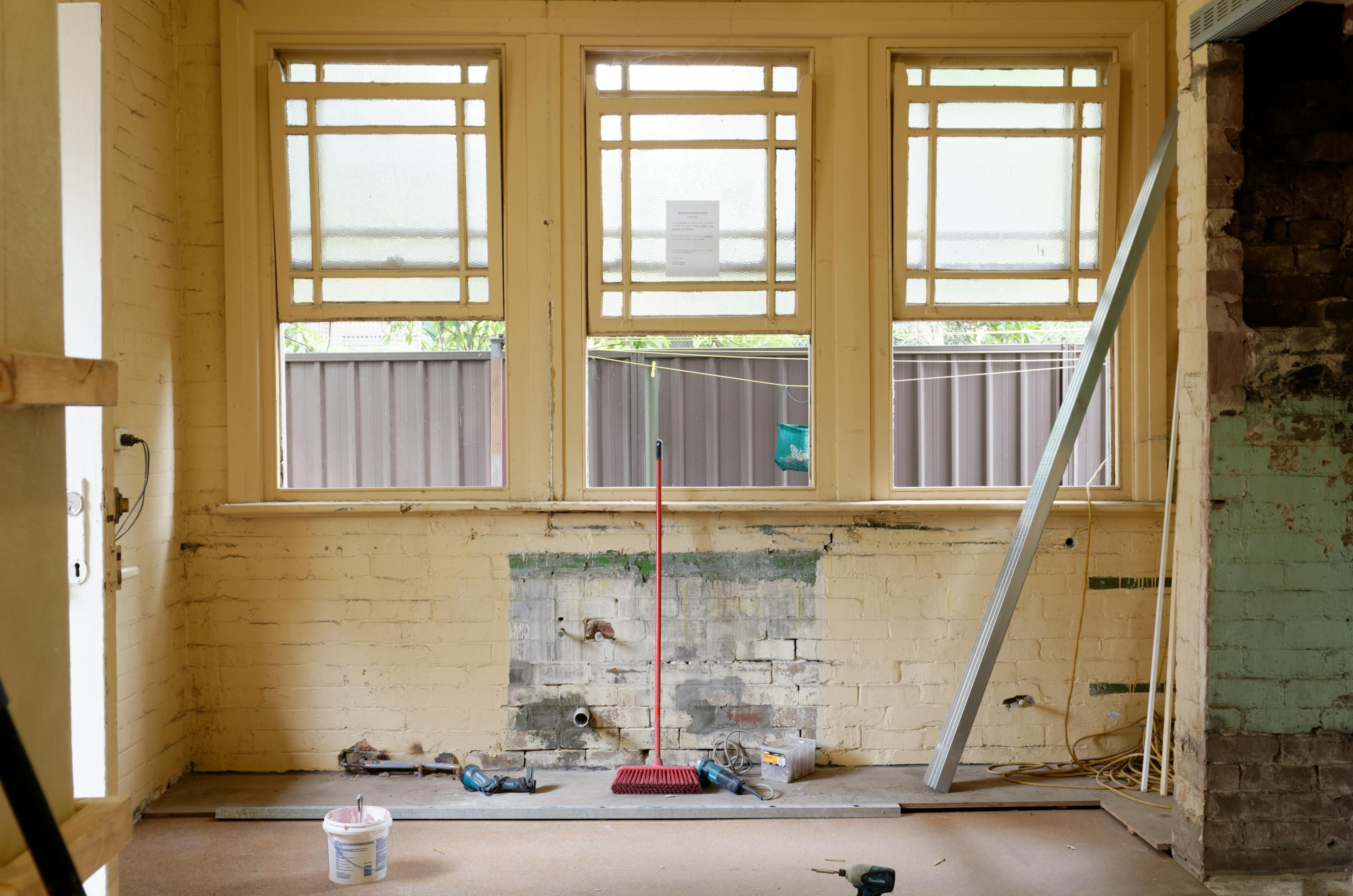Flipping Houses During A Recession: A Smart Investor's Survival Guide

Introduction
Flipping houses during a recession might seem like a daunting task, akin to venturing into a storm without an umbrella. However, it can be an opportune time to buy, renovate, and sell real estate for profit if approached strategically. One effective method is the 'live in flip,' where investors purchase a fixer-upper as their primary residence, allowing them to renovate while living on-site. Despite the fear that typically grips the market during economic downturns, savvy investors recognize the hidden opportunities. Recessions often bring job losses, higher interest rates, and buyer hesitation, leading to decreased property values and slower sales. Yet, as fear dominates, motivated sellers become more prevalent, offering a unique chance for investors to negotiate profitable deals.
Understanding the Real Estate Market in a Recession
Understanding Economic Downturn
Economic downturns can feel like navigating a ship through stormy seas, but for savvy real estate investors, these periods can also present unique opportunities. During a recession, the real estate market often experiences decreased demand and lower property values, which can lead to reduced cash flows. However, understanding the causes and effects of economic downturns can help you make informed decisions about your investment portfolio.
When the economy slows down, housing prices tend to decline, making it an opportune time to buy real estate at a discount. But with these opportunities come risks, such as increased chances of default and foreclosure. Real estate investors must carefully evaluate market conditions and their financial situation before diving in. By staying informed and strategic, you can turn the challenges of an economic downturn into profitable real estate investment opportunities.
What Happens to Home Prices During a Recession?
In most recessions, property prices decline or flatten. The severity depends on the cause of the downturn, but typically, distressed sales increase—foreclosures, job loss, divorce—all of which create buying opportunities for investors.
How Housing Supply and Demand Shifts
Buyers vanish faster than summer rain, which means inventory builds up due to shifts in local market dynamics. That gives you room to negotiate. However, homes also sit longer, so smart flips need tighter execution and better pricing strategies.
What Changes with Buyers' Behavior?
Potential buyers become cautious during a recession. They want move-in ready homes, priced fairly, in safe, stable neighborhoods. They're not dreaming of luxury—they want reliability. Flip with that mindset, and you'll attract serious buyers even during rough times.

Pros of Flipping Houses in a Recession
Distressed Properties Are Everywhere
Recessions increase financial hardship, making it an opportune time to find distressed properties for an investment property. You'll find:
Estate sales
Burned-out landlords
Divorce situations
That's a goldmine of deeply discounted deals if you know where to look.
Motivated Sellers = More Negotiating Power
Sellers aren't holding out for bidding wars—they want a fast, clean exit. That puts you in control to negotiate profitable deals with motivated sellers. You can negotiate price, terms, and even seller financing in some cases.
Less Competition from Other Investors
While others sit on the sidelines, you face fewer competing offers from other investors who have less money to allocate. That means better pricing, better terms, and less risk of being outbid.
Cons of Flipping Houses in a Recession
Slower Home Sales
Your property might sit longer, which increases holding costs—utilities, taxes, insurance, interest—due to slower home sales. However, certain types of properties, such as student and senior housing, maintain steady demand even during economic downturns. Time is money, and in a recession, time gets expensive fast.
Financing May Be Tougher
Banks get cautious too, making it essential to explore various financing options during a recession. If you're relying on conventional financing, be prepared for tighter approval standards. Cash and private capital become your best friends.
Buyer Fear and Market Uncertainty
Buyers worry about how a recession affect job security and falling prices. They need extra reassurance—whether it's turnkey condition, warranties, or flexible terms.

How to Flip Houses Successfully in a Recession
1. Focus on Affordable Price Points
Low purchase prices are crucial during a recession. Focus on:
First-time buyer markets
Median or below-median home prices
Stable, working-class neighborhoods
These buyers are always in the market—even when the economy slows.
2. Prioritize Quick Turnarounds
You need to be fast and efficient to secure profitable deals, especially during a recession. That means:
No major structural rehabs
Use trusted contractors
Plan renovations in advance
Order materials early to avoid delays
The quicker the flip, the lower the risk.
3. Buy Below Market—Way Below
Your profit is made when you buy, not when you sell. In a recession, acquiring properties at low purchase prices below market value is crucial. The Maximum Allowable Offer (MAO) formula becomes non-negotiable:
MAO = ARV x 70% - Repairs
And sometimes, even that 70% needs to be 65% or less. Pad in extra room for uncertainty.
4. Avoid Over-Renovating
When flipping houses during a recession, it's crucial to avoid over-renovating to secure profitable deals. You're not designing a showroom, so skip the imported tile and gourmet kitchen unless comparable properties demand it. Instead, focus on impactful yet cost-effective improvements like fresh paint, updated flooring, modernized kitchens and bathrooms, and enhancing curb appeal. Keeping renovation costs tight while maximizing return on investment is essential, especially in a market characterized by economic uncertainty and decreased demand. By prioritizing these strategic renovations, you can attract potential buyers looking for affordable, reliable homes without overextending your budget.
5. Build a Backup Exit Strategy
What if it doesn't sell?
Rent it out (short-term or long-term)
Lease option to a tenant-buyer
Seller finance to create passive income
Always have Plan B ready before you even buy the investment property, especially during a recession.

6. Know Your Buyers
Today's potential buyers want:
Affordable homes
Energy efficiency
Home office space
Low-maintenance finishes
Offer what people want—not what you think is cool.
Managing Risk and Cash Reserves
In the unpredictable waters of an economic downturn, managing risk and maintaining cash reserves are essential lifeboats. A well-diversified investment portfolio mitigates risk, ensuring not all your eggs are in one basket. Cash reserves provide a safety net for unexpected expenses or market fluctuations, allowing you to weather the storm. Real estate investors should weigh the risks and rewards of strategies like flipping houses or generating rental income. Monitoring interest rates is crucial, as they impact property affordability and the real estate market. By being prepared and adaptable, you can navigate economic challenges and emerge ahead.
Strategies for Financial Stability
Achieving financial stability during an economic downturn requires a solid foundation. This includes a diversified investment portfolio, stable cash flow, and a robust emergency fund. Investing in residential real estate, such as single-family rentals or multifamily properties, can provide a steady stream of rental income, helping to mitigate risk. To learn more about setting a budget for your investment, read Essential Strategies for Budgeting for Real Estate Investing Success.
Working with a financial advisor can be invaluable in developing a customized investment plan that aligns with your unique financial situation and goals. By focusing on building a resilient investment portfolio and maintaining a steady cash flow, you can achieve financial stability even in the face of economic uncertainty.
Building a Safety Net for Uncertain Times
Building a safety net is essential for real estate investors to weather economic uncertainty and market downturns. This involves maintaining a cash reserve, diversifying investments, and having a plan in place for unexpected expenses or market fluctuations.
Consider the potential impact of economic downturns on your investment properties, such as decreased demand or lower property values, and adjust your strategy accordingly. By being prepared and proactive, you can reduce your risk and increase your potential for long-term success, ensuring that you can navigate through uncertain times with confidence.
Finding Flip Opportunities in a Down Market
Look for Pre-Foreclosures and Auctions
Distressed owners often want to avoid the embarrassment of foreclosure. Look for profitable deals in pre-foreclosures and auctions, especially during a recession. Use:
Local courthouse notices
Contact them early and offer speed and certainty.
Partner with Wholesalers
Wholesalers thrive in uncertain markets by securing profitable deals. They find deals others miss, to learn more see Essential Real Estate Wholesaling Tips for Success in Your Journey. Just make sure you:
Run your own comps
Confirm repair estimates
Verify they have the property under contract

Work with Agents Who Know Distressed Inventory
Some realtors specialize in short sales, REOs, or "ugly houses." Working with agents who know distressed inventory during a recession can help you secure profitable deals. Let them know what you're looking for, and they'll feed you deals before they hit the market.
Financing Strategies for Flipping During a Recession
Use Private Money When Banks Say No
Private lenders are everywhere. When banks say no during a recession, pitch them with:
Secured deals
6–12 month repayment timelines
8–12% returns
In a volatile market, real estate is more appealing than the stock market.
Hard Money Still Works—Just Be Smart
Hard money lenders love flippers, and exploring various financing options can ensure that hard money still works during a recession—but don't over-leverage. Account for:
Higher interest rates
Loan fees
Holding costs
Use hard money for fast flips only—don't hold long-term.
Tax Implications and Benefits
Real estate investing provides several tax advantages that can boost your financial returns. Deductions for mortgage interest, property taxes, and operating expenses can reduce your taxable income, enhancing your overall profitability. Additionally, investing in rental properties offers passive income, often taxed at a lower rate than active income, while tax-deferred exchanges allow you to defer capital gains taxes, enabling efficient reinvestment of profits. To learn more, read Maximize Your Returns: Tax Benefits of Real Estate Investing Explained. Collaborating with a tax professional helps maximize these benefits, allowing you to make informed decisions and increase your potential for long-term success in real estate investing.
Mistakes to Avoid When Flipping in a Recession
Overestimating ARV in a Declining Market
The market today might not be the market three months from now, especially when it comes to securing profitable deals. Be conservative. Use the lowest comps, not the highest.
Not Budgeting for a Longer Hold Time
Build in 3–6 months of holding reserves just in case it takes longer to sell and to secure profitable deals, especially during a recession.
Ignoring Exit Strategies
Always have multiple ways to make money from the property, focusing on securing profitable deals even during a recession. Hope is not a strategy.

Conclusion
Flipping houses during a recession isn't just possible—it can be extremely profitable if approached strategically. To secure profitable deals on investment properties, you must move smart, act quickly, and prepare for the worst while hoping for the best. Focus on entry-level homes, buy deeply discounted properties, and renovate efficiently, always having a backup plan in place. Low purchase prices and diverse financing options are essential during a recession. Establishing connections with private lenders can provide alternative financing solutions, allowing you to navigate economic challenges effectively. While others play it safe, you'll be making strategic moves, and when the real estate market rebounds, you'll already be miles ahead in your investment journey.